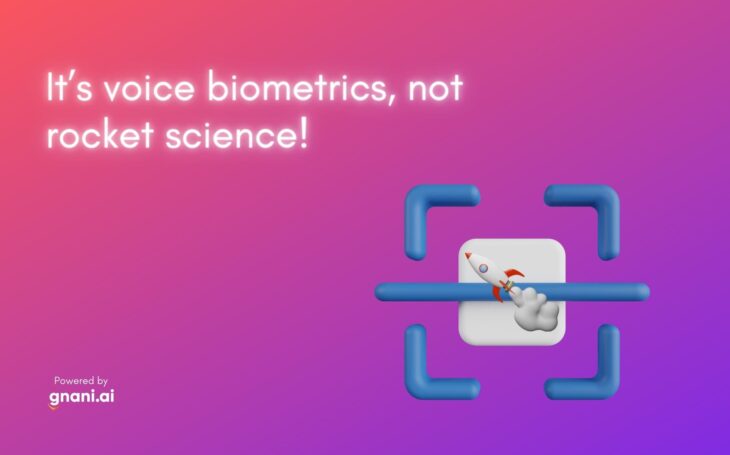
Voice biometrics is a technology that can be used to authenticate or verify the identity of an individual based on their unique vocal characteristics. It is sometimes also referred to as voice recognition or speaker verification.
The basic principle behind voice biometrics is that every person’s vocal cords produce sound waves that are unique to them, similar to fingerprints. By analyzing these sound waves, it is possible to create a mathematical representation of someone’s voice, which can then be used for identification purposes.
Voice biometrics has been around for several decades and has been used in a variety of applications, including law enforcement and national security. More recently, however, the technology has started to gain traction in the commercial sector as organizations look for more effective ways to authenticate users and protect sensitive data.
What is voice biometrics?
Voice biometrics is a newer, more sophisticated form of authentication that is quickly gaining popularity. Unlike traditional forms of authentication like passwords and PINs, voice biometrics uses your unique vocal characteristics to verify your identity. This makes it much more difficult for someone to impersonate you and gain access to your accounts.
How does voice biometrics work?
When you enrol in a voice biometrics system, you will be asked to speak a phrase or read a set of numbers. The system will then analyze your voice and create a unique “voiceprint” based on over 100 different characteristics. This voiceprint will be stored in the system and used to verify your identity whenever you need to authenticate yourself.
What are the benefits of voice biometrics?
There are several key benefits of voice biometrics over traditional authentication methods:
- Voice biometrics is more convenient than passwords or PINs. You can authenticate yourself with your voice from anywhere, without having to remember any complex strings of characters.
- Voice biometrics is more secure than passwords or PINs. Your vocal cords produce sound waves that are unique to you, similar to your fingerprints. This makes it much more difficult for someone to impersonate you and gain access to your accounts.
- Voice biometrics is less likely to be compromised by social engineering attacks. In a social engineering attack, an attacker tries to trick you into revealing sensitive information like your password or PIN. With voice biometrics, the attacker would need to know both your voiceprint and the phrase that you use to authenticate yourself. This makes it much harder for an attacker to successfully impersonate you.
What are the challenges of voice biometrics?
There are a few challenges associated with voice biometrics:
- Voice biometrics can be fooled by recordings. If an attacker has a recording of your voice, they could potentially use it to spoof your voiceprint and gain access to your accounts. To counter this, some systems require you to speak a randomly generated phrase that is different each time you authenticate yourself.
- Voice biometrics can be affected by environmental factors. If you have a cold or other condition that alters the sound of your voice, it could impact the accuracy of the voiceprint. To counter this, some systems allow you to enrol multiple voiceprints, each recorded under different conditions.
- Voice biometrics is a newer technology and as such, it is not yet as widely adopted as traditional authentication methods like passwords and PINs. This means that you may not be able to use voice biometrics to authenticate yourself with all of the services and applications that you use. However, this is likely to change in the future as voice biometrics becomes more popular.
One of the biggest advantages of voice biometrics is that it’s much more convenient than traditional forms of authentication. You can use your voice to authenticate yourself from anywhere, at any time. This makes it ideal for situations where you need to quickly access your accounts, such as when you’re making a purchase online or logging into your bank account.
Voice biometrics is also more accurate than traditional forms of authentication. Because your vocal characteristics are unique to you, there’s a very small chance that someone else will be able to impersonate you and gain access to your accounts.
If you’re looking for a more secure and convenient way to authenticate yourself, voice biometrics is definitely worth considering.
Do you feel like voice biometrics is something you would like to use? Let us know in the comments!




